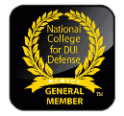. Prescription Drugs
As I covered in my last blog, in Maine, it is a crime to operate a motor vehicle while under the influence (OUI) of alcohol and/or drugs. Drugs include legally prescribed medications that can cause impairment of your mental or physical faculties or impair your ability to safely operate a motor vehicle.
In order to protect yourself from criminal prosecution, as well as to protect yourself, your passengers and other motorists and pedestrians, you must ask your physician and pharmacist about the effects of any medications that you are taking, whether prescribed or over the counter (OTC). Ask about whether it is safe to drive after taking such medications. How long should I wait before driving after taking that medication? Is it safe to drink alcohol while taking it?
Some medications, prescription and OTC, warn against drinking alcohol while taking them. Some warnings are there because of liver toxicity. Heed those warnings. But, many of those warnings are not intended to state or imply that the medication causes impairment or that any impairment may be enhanced by the consumption of alcohol.
Other medications specifically warn the consumer not to drive or that drowsiness, fatigue, etc. may be enhanced by the consumption of alcohol. Always read your labels carefully when taking any medications, prescribed or OTC. Ask your physician and your pharmacist about the impairing effects of all medications. If you have any doubt about the impairing effects of any medications that you are taking or how they interact with alcohol, DO NOT DRIVE !
II. Alcohol and driving
Do not rely on online charts, formulae or the like to calculate your breath or blood alcohol concentration when determining whether or not you are “safe” to drive. Those devices are intended to give “estimates” of your BAC or BrAC based on the “average person”. None of us are the “average person”.
Additionally, most of those charts and formulae are based on the assumption that your drinks are four ounce pours of wine (10-11% alcohol), liquor (one ounce at 80 proof or 40% alcohol) or 12 ounces of beer (4% alcohol). Rarely do bartenders or hosts use one ounce of liquor. A standard shot glass is at least and ounce and a half. Many micro-brew beers are 8-10% alcohol and are served in 16 ounce glasses. Get the picture? Counting drinks rarely, if ever, accounts for the amount of alcohol that one consumes at a party or a night on the town.
Keep in mind that it is a crime to operate a motor vehicle under the influence (while your mental or physical faculties are impaired to the slightest degree) in Maine, regardless of your BAC or BrAC.
Alcohol causes impairment like many other drugs. The best bet, when using alcohol or any other impairing drug, is DO NOT DRIVE after consuming them.
If you have been charged with OUI, or any other criminal offense, call 207-879-4000. We are located at 1250 Forest Avenue, Portland, Maine 04103.
Disclaimer: This article is intended to provide general, not specific, information about Maine law. The publication of this article does not constitute an attorney-client relationship between the author(s) and the reader(s).





